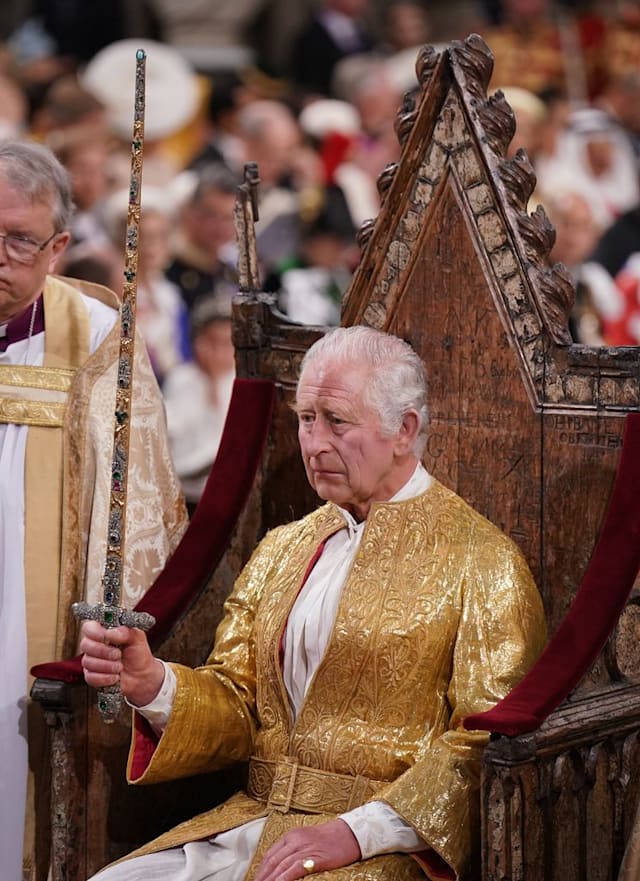
King Charles played the starring role in the historic royal coronation on Saturday, May 6, and there was one accessory he was sure not to leave Buckingham Palace without his trusty signet ring.
The monarch may have carried a bejewelled orb and sceptre, and worn the glittering St Edward’s Crown upon his head – but his most beloved piece of jewellery is surely his Welsh gold signet, worn on his left pinky finger.
In fact, there was some speculation whether the King would continue to wear the ring since it bears the insignia of his former Prince of Wales title – which is now the title of his eldest son, Prince William.
Charles’ ring bears the official symbol of the Prince of Wales, and it is believed to have been passed on to him by his uncle Prince Edward, the Duke of Windsor – who was himself, Prince of Wales before he ascended the throne (and later abdicated).
It is the only ring that King Charles always wears – he is even known to nestle his wedding ring beneath it, instead of on his traditional wedding finger. He did this with his marital band with Princess Diana right up until 2005, removing it after he announced his engagement to Queen Camilla.



King Charles now wears his wedding band from Camilla proudly in the very same place – though sometimes, and even during his coronation ceremony, he wears the signet ring alone.
Jewellery historian Helen Dimmick said: “Since the mid-1970s King Charles III has been photographed wearing a signet ring on the smallest finger of his left hand,” she says. “For the then Prince of Wales this was a very personal and symbolic jewel – the precious yellow gold oval bezel is engraved with his heraldic badge of three ostrich feathers emerging from a gold coronet, with the ribbon below bearing the motto ‘Ich Dien’, or ‘I serve’.”
“We understand this very signet ring was a gift for King Charles from his Uncle, Prince Edward the Duke of Windsor, the previous Prince of Wales,” she adds.
“Dating back to the Pharaohs, historically the signet ring has played an important role to authenticate documents, as the carved-out individual crest left a permanent mark in any soft wax or clay.
“Sometimes known as ‘the gentlemen’s ring’, in recent decades women are just as likely to adopt the style. They are however still seen as a symbol of social standing, embodied by the etiquette of presenting a child on their 21st birthday with a signet ring of the family crest when they ‘come of age’ and have the authority to use the crest.”
Though Prince William is now Prince of Wales, it’s unknown whether King Charles plans to pass on the signet ring like his Uncle did. It seems unlikely at present, firstly because Prince William does not like to wear jewellery – he does not even wear his wedding ring – and secondly, because the signet carries great significance to the monarch.
King Charles chose to wear his Prince of Wales signet ring on his coronation day, proving its poignant meaning to him – can we expect to see it throughout his reign, too? That remains to be seen.

 Mzansi xxx
Mzansi xxx